- Home›
- Healthy Living›
- 5 Food Items That Can Help You Lower Your Cholesterol
5 Food Items That Can Help You Lower Your Cholesterol
By: Priyanka Maheshwari Fri, 11 Aug 2023 1:02:27
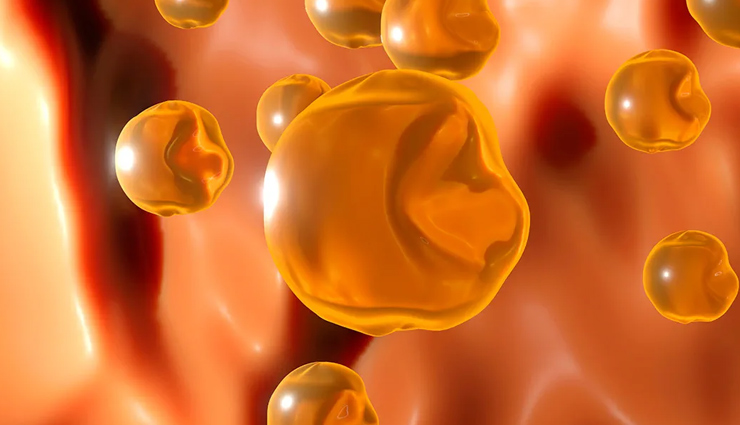
Cholesterol is a type of lipid, or fat-like molecule, that plays a vital role in the structure and function of cell membranes and various physiological processes in the human body. It is essential for the proper functioning of the body, yet its levels need to be carefully regulated to maintain good health.
Cholesterol can be obtained from two sources: dietary intake and synthesis by the body, primarily in the liver. It is transported in the bloodstream by lipoproteins, which are complexes of proteins and fats. The two main types of lipoproteins associated with cholesterol transport are low-density lipoprotein (LDL) and high-density lipoprotein (HDL).
- LDL Cholesterol
Often referred to as "bad" cholesterol, LDL carries cholesterol from the liver to various cells and tissues in the body. However, if there's an excess of LDL cholesterol or if it's not effectively taken up by cells, it can accumulate in the walls of arteries, forming plaques that narrow and stiffen the arteries. This condition, known as atherosclerosis, can lead to cardiovascular diseases, including heart attacks and strokes.
- HDL Cholesterol
Referred to as "good" cholesterol, HDL transports excess cholesterol from the bloodstream back to the liver for processing and elimination. High levels of HDL are associated with a lower risk of cardiovascular diseases.
Maintaining a healthy balance between LDL and HDL cholesterol levels is crucial for cardiovascular health. Elevated LDL cholesterol levels, especially when accompanied by other risk factors such as smoking, high blood pressure, and diabetes, can increase the likelihood of heart disease. Lifestyle factors, including diet, exercise, and weight management, play significant roles in influencing cholesterol levels.
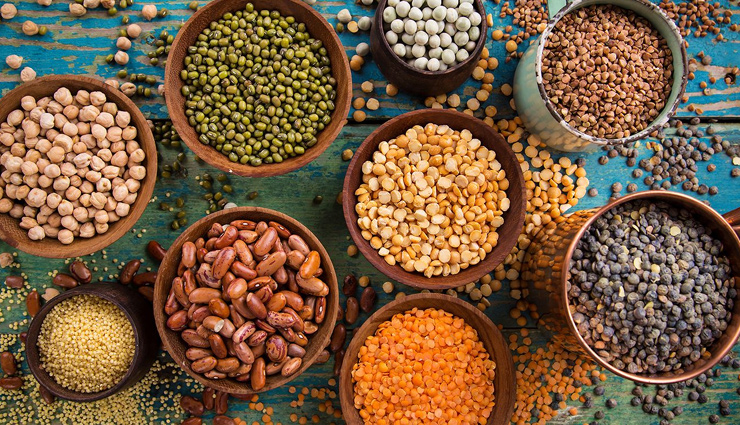
# Legumes
Beans, peas, and lentils belong to the category of plant foods referred to as legumes or pulses. These foods are rich in protein content, which can effectively curb hunger pangs between meals. Legumes stand out as an excellent alternative to meat, contributing to the reduction of cholesterol levels. Furthermore, they can serve as a robust reservoir of plant-derived protein.
Incorporating legumes into your diet can be highly beneficial for lowering cholesterol levels. Legumes, such as beans, peas, lentils, and chickpeas, offer a variety of heart-healthy nutrients and compounds that can contribute to cholesterol management. Here's how legumes can help in lowering cholesterol:
- Soluble Fiber: Legumes are rich in soluble fiber, a type of dietary fiber that binds to cholesterol in the digestive tract. This helps prevent the absorption of cholesterol into the bloodstream, effectively reducing LDL (bad) cholesterol levels. Soluble fiber also promotes a feeling of fullness, which can aid in weight management and further support heart health.
- Plant Sterols: Legumes contain plant sterols, which are compounds that have a structure similar to cholesterol. Plant sterols compete with cholesterol for absorption, leading to reduced cholesterol absorption in the gut. This mechanism helps lower LDL cholesterol levels.
- Low in Saturated Fat: Legumes are naturally low in saturated fat, which is a type of fat associated with increasing LDL cholesterol levels. Substituting legumes for high-saturated-fat animal proteins can contribute to a lower intake of saturated fats.
- Quality Protein: Legumes are an excellent source of plant-based protein. Replacing animal protein with legumes can help maintain a balanced diet while reducing the intake of saturated fats and cholesterol found in many animal products.
- Antioxidants and Phytochemicals: Legumes contain various antioxidants and phytochemicals that have been linked to improved heart health. These compounds can help protect against oxidative stress and inflammation, which are risk factors for heart disease.
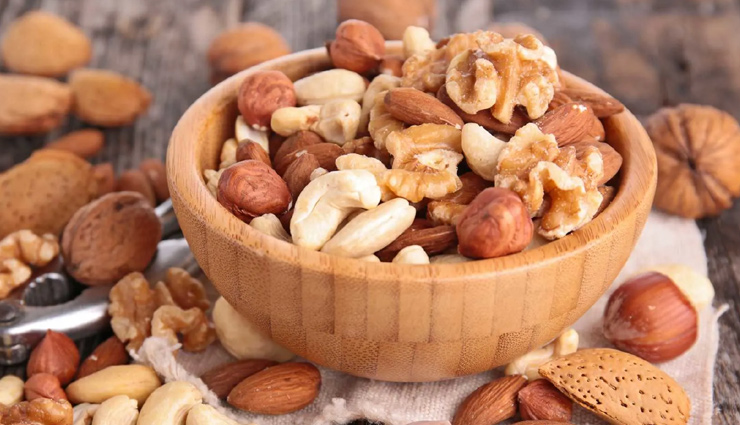
# Nuts
Nuts provide an excellent supply of soluble fiber, unsaturated fats, and protein. When substituted for animal products high in saturated fats, they can help prevent elevated levels of LDL cholesterol (often referred to as "bad" cholesterol). Additionally, the soluble fiber present in nuts may contribute to reducing LDL cholesterol levels.
Nuts are a nutritious and heart-healthy food that can contribute to lowering cholesterol levels. Despite being calorie-dense, they offer an array of beneficial nutrients and fats that can positively impact cholesterol and overall cardiovascular health. Here's how nuts can help in lowering cholesterol:
- Healthy Fats: Nuts are rich in monounsaturated and polyunsaturated fats, which are considered heart-healthy fats. These fats can help lower LDL (bad) cholesterol levels while maintaining or even increasing HDL (good) cholesterol levels.
- Plant Sterols: Like legumes, nuts also contain plant sterols, which compete with cholesterol for absorption in the gut. This competition reduces the amount of cholesterol absorbed into the bloodstream, leading to lower LDL cholesterol levels.
- Fiber Content: Nuts, particularly almonds, pistachios, and hazelnuts, provide a decent amount of dietary fiber. Fiber helps reduce cholesterol absorption and can contribute to lower LDL cholesterol levels.
- Antioxidants: Nuts are packed with antioxidants, such as vitamin E and various phytochemicals. Antioxidants help protect the arteries from oxidative damage and inflammation, which are risk factors for heart disease.
- Arginine: Some nuts, like almonds, are a good source of the amino acid arginine. Arginine supports blood vessel health by promoting vasodilation, which can improve blood flow and overall cardiovascular function.
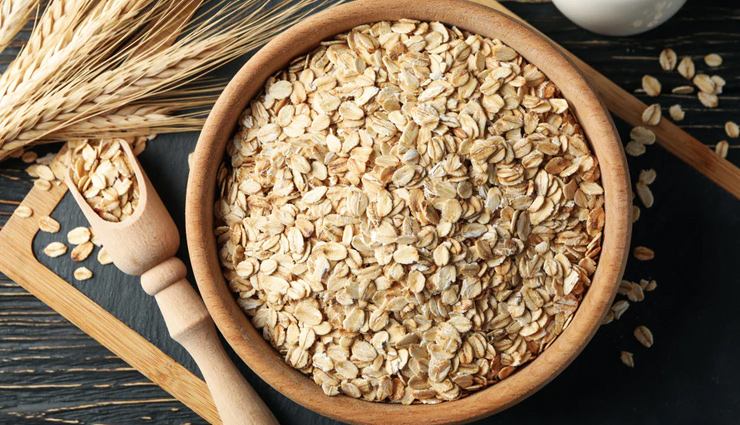
# Oats
Oats are a dietary powerhouse known for their potential to lower cholesterol levels and promote heart health. They are rich in specific compounds that have been shown to have positive effects on cholesterol management. Here's how oats can aid in lowering cholesterol:
- Beta-Glucans: Oats contain a type of soluble fiber called beta-glucans. These fibers form a gel-like substance in the digestive tract, which binds to cholesterol and bile acids. This binding process reduces the absorption of cholesterol into the bloodstream, resulting in lower LDL (bad) cholesterol levels.
- Low Glycemic Index: Oats have a low glycemic index, meaning they cause a gradual and sustained rise in blood sugar levels. This property can be beneficial for individuals with diabetes or those looking to manage their blood sugar levels, as high blood sugar levels can contribute to heart disease risk.
- Rich in Antioxidants: Oats contain antioxidants, including avenanthramides, which have anti-inflammatory and vasodilatory properties. These antioxidants help protect the arteries from damage, enhance blood flow, and contribute to overall cardiovascular health.
- Whole Grain Benefits: Oats are a whole grain, and whole grains have been associated with a lower risk of heart disease. Consuming whole grains like oats instead of refined grains can contribute to improved cholesterol profiles and heart health.
- Weight Management: Oats are a filling and satisfying food due to their fiber and protein content. Incorporating oats into your diet can promote satiety, potentially helping with weight management. Maintaining a healthy weight is essential for heart health.
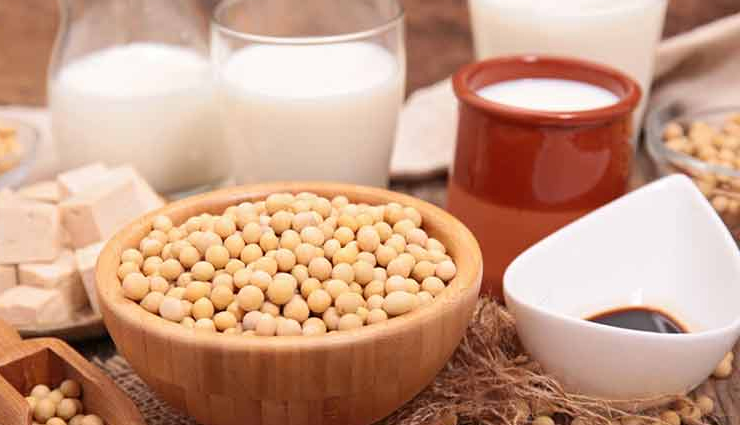
# Soy Products
Soy products are recognized for their potential to help lower cholesterol levels and promote heart health. These plant-based foods contain unique compounds that contribute to cholesterol management. Here's how soy products can be beneficial for reducing cholesterol:
- Isoflavones: Soy products, such as tofu, tempeh, and soy milk, are rich in isoflavones, which are plant compounds with antioxidant properties. Isoflavones have been linked to improvements in cholesterol levels by affecting the way the body processes and regulates cholesterol.
- Soy Protein: Soy products are a good source of high-quality plant protein. Replacing animal protein with soy protein in the diet can help lower LDL (bad) cholesterol levels. Soy protein may also positively impact other cardiovascular risk factors, such as blood pressure.
- Soluble Fiber: Some soy-based foods contain soluble fiber, which can help reduce cholesterol absorption in the digestive tract. This, in turn, can lead to lower LDL cholesterol levels.
- Low in Saturated Fat: Many soy products are naturally low in saturated fat. By choosing soy-based alternatives over animal products that are high in saturated fats, you can help lower your overall intake of unhealthy fats that contribute to elevated cholesterol levels.
- Phytosterols: Soy contains phytosterols, which are plant compounds similar in structure to cholesterol. Phytosterols compete with cholesterol for absorption in the gut, leading to reduced cholesterol absorption and lower LDL cholesterol levels.
- Omega-3 Fatty Acids: Some soy products, like edamame (young soybeans), contain alpha-linolenic acid (ALA), a type of omega-3 fatty acid. Omega-3s have cardiovascular benefits, including reducing inflammation and improving lipid profiles.
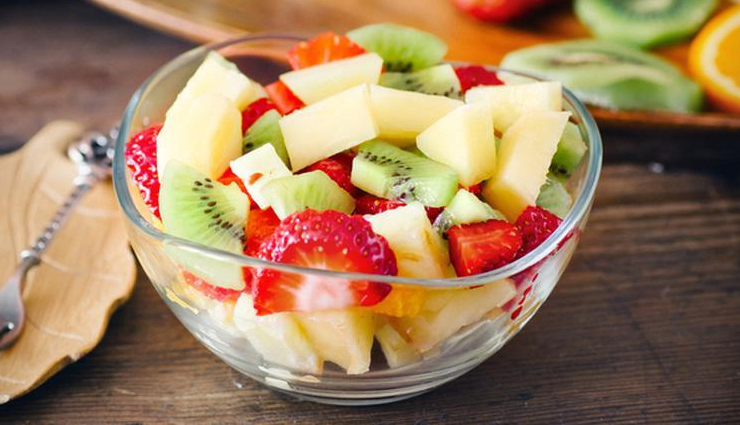
# Fruits
Fruits are a delicious and nutritious addition to a heart-healthy diet, and many types of fruits can contribute to lowering cholesterol levels and supporting cardiovascular health. Here's how various fruits can help in reducing cholesterol:
- Berries: Berries such as blueberries, strawberries, and raspberries are rich in antioxidants called polyphenols. These antioxidants have been shown to have positive effects on heart health by reducing oxidative stress and inflammation, both of which are risk factors for heart disease.
- Citrus Fruits: Oranges, grapefruits, lemons, and other citrus fruits are high in soluble fiber and pectin. Soluble fiber helps to lower LDL (bad) cholesterol levels by binding to cholesterol in the digestive tract and aiding in its elimination.
- Apples: Apples are a good source of soluble fiber, particularly in their skins. Consuming apples and their fiber can help regulate cholesterol absorption and contribute to lower LDL cholesterol levels.
- Avocado: While technically a fruit, avocados are often considered a source of healthy fats. They provide monounsaturated fats that can help increase HDL (good) cholesterol levels while reducing LDL cholesterol and triglycerides.
- Pears: Like apples, pears contain soluble fiber that can help lower cholesterol levels. They also contain potassium, which supports heart health by helping to regulate blood pressure.
- Pomegranates: Pomegranates are rich in antioxidants and polyphenols that have been associated with improvements in cholesterol levels. They may also promote overall cardiovascular health by reducing inflammation and oxidative stress.
- Kiwi: Kiwi is a good source of vitamin C, fiber, and antioxidants. These components can collectively contribute to heart health and help manage cholesterol levels.
- Grapes: Grapes, particularly red and purple varieties, contain compounds called resveratrol and flavonoids, which have been linked to improved heart health. Resveratrol may help raise HDL cholesterol levels and protect against artery damage.





